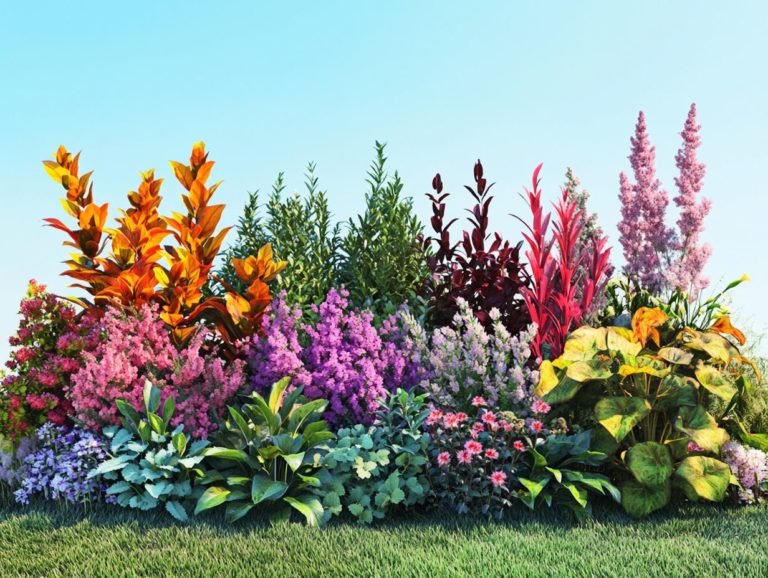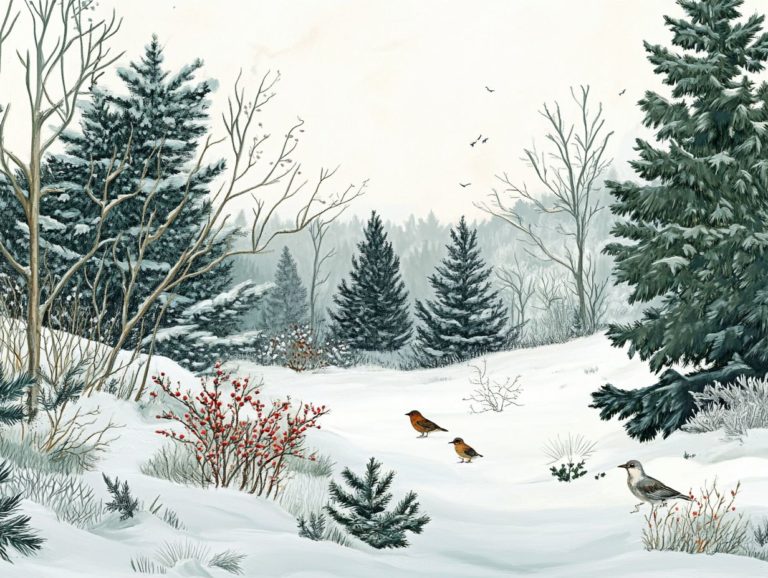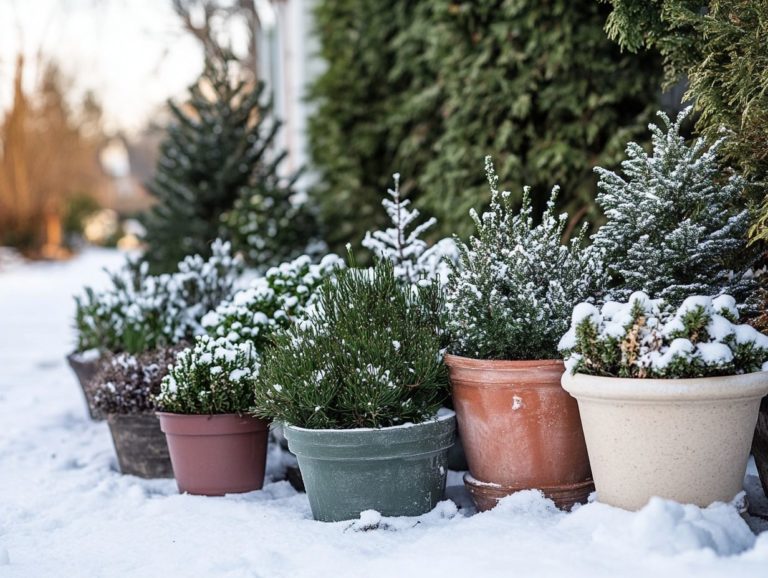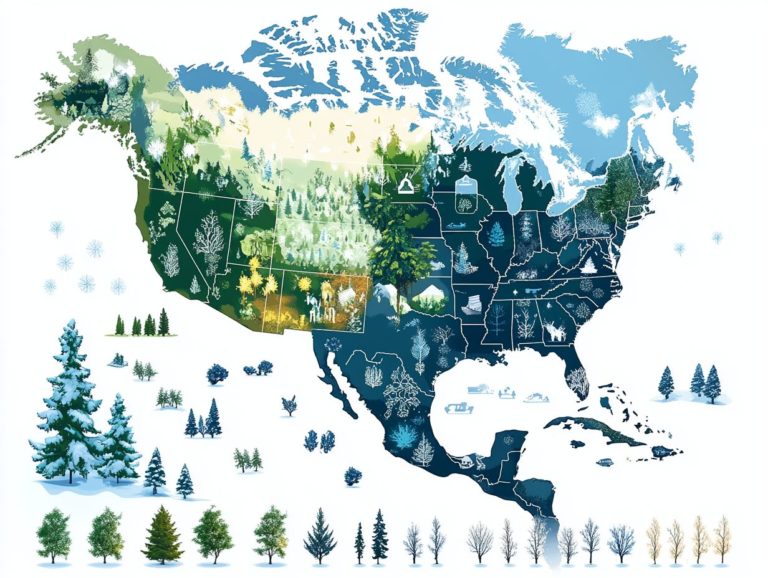Choosing the Right Fertilizer for Cold-Climate Plants
Selecting the right fertilizer for cold-climate plants can profoundly impact their growth and overall well-being.
Given the unique challenges that arise from lower temperatures, it s crucial to understand how climate influences plant development. Let s explore the must-know tips for choosing the right fertilizer that will help your plants thrive!
This article delves into the essential components of fertilizers, examines the distinctions between organic and inorganic options, and emphasizes key factors to consider based on plant type and soil conditions.
You will find best practices for applying fertilizers and identify common pitfalls to avoid, ensuring your plants flourish even in challenging environments.
Contents
- Key Takeaways:
- The Importance of Choosing the Right Fertilizer for Cold-Climate Plants
- Understanding Fertilizer Components
- Types of Fertilizers for Cold-Climate Plants
- Factors to Consider When Choosing Fertilizer
- Applying Fertilizer to Cold-Climate Plants
- Common Mistakes to Avoid
- Frequently Asked Questions
- What is the best type of fertilizer for cold-climate plants?
- Can I use the same fertilizer for all my cold-climate plants?
- Do I need to fertilize my cold-climate plants during the winter?
- How often should I fertilize my cold-climate plants?
- Are organic fertilizers better for cold-climate plants?
- Can I make my own fertilizer for cold-climate plants?
Key Takeaways:
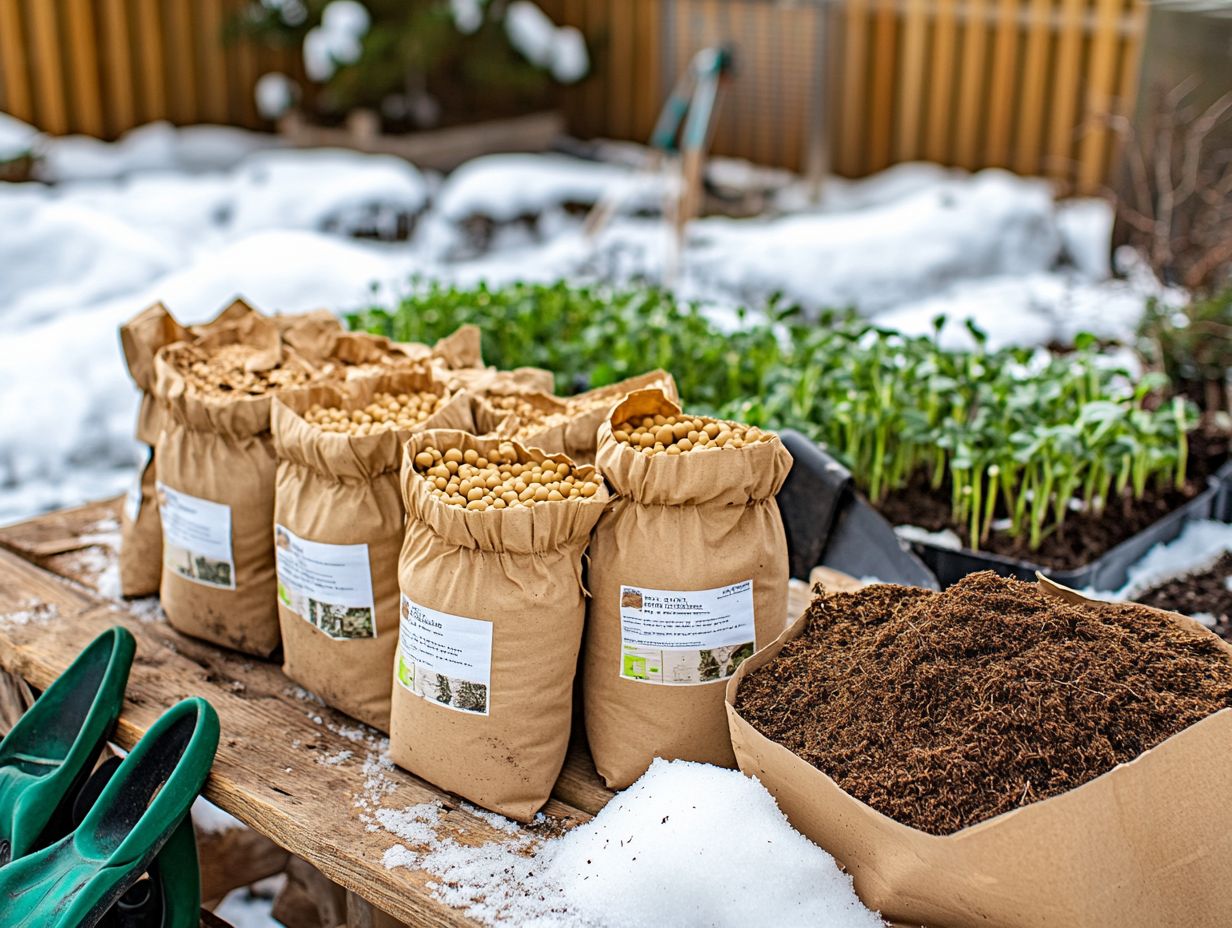
- Choose fertilizers with a higher ratio of nitrogen to support cold-climate plant growth and prevent stunted growth.
- Consider the pH level and soil composition of your garden before choosing a fertilizer, as they can affect nutrient absorption.
- Avoid over-fertilization and follow best practices for application to prevent potential consequences such as nutrient burn or leaching of nutrients into the environment.
The Importance of Choosing the Right Fertilizer for Cold-Climate Plants
Choosing the right fertilizer for cold-climate plants is crucial for promoting optimal growth and vitality, particularly during those chilly winter months. For those interested in choosing the right plants for cold climates, lawn care professionals in South Africa stress the importance of grasping the specific nutrient requirements of your plants.
These needs can fluctuate based on soil type, climatic conditions, and the individual plants themselves. By applying winter fertilizers properly, you can lay the groundwork for robust spring growth.
This improves nutrient availability and enhances overall plant health, ensuring that your lawn flourishes beautifully throughout the seasons.
Effects of Climate on Plant Growth
The effects of climate on plant growth are profound, especially in regions with cold winters. Here, plants often enter dormant states to conserve energy and endure harsh conditions. This dormancy plays a crucial role in their resilience to frost, as variations in cold resistance can significantly impact their survival rates.
Fluctuating soil moisture levels during winter can heighten stress on these plants. Inadequate hydration may hinder their metabolic functions, complicating their ability to thrive.
Nutrient deficiencies also become a significant concern in cold climates, largely due to minimal microbial activity in the soil. Therefore, employing effective fertilization strategies is essential to enhance nutrient availability.
This allows plants to better navigate the challenges posed by severe weather conditions, ensuring they emerge healthy and ready to flourish when the warm temperatures return.
Understanding Fertilizer Components
Grasping the intricacies of fertilizer components is essential for maximizing its effectiveness in fostering robust plant growth, especially in colder climates where nutrient availability can be a challenge. Additionally, selecting the right containers for cold-climate plants can further enhance your gardening success.
Fertilizers are generally composed of three main nutrients: nitrogen, phosphorus, and potassium. Each of these elements serves a distinct purpose in enhancing plant development and contributing to overall soil health.
Understanding their roles will enable you to make informed choices that promote thriving gardens and landscapes.
Nutrients and Their Functions
Nutrients like nitrogen, phosphorus, and potassium are essential for your plants’ health, profoundly influencing their growth and development.
Take nitrogen, for example; it s pivotal in synthesizing amino acids, the building blocks of proteins that are crucial for cell development and overall plant vitality. Phosphorus, on the other hand, is key for energy transfer within the plant, aiding in processes such as photosynthesis and the formation of nucleic acids.
This ultimately promotes strong root growth and vibrant flowering. Meanwhile, potassium governs critical functions like water uptake and enzyme activation, equipping your plants with the resilience they need to withstand environmental stressors.
By understanding the availability of these nutrients, you can fine-tune your fertilization practices, ensuring your plants receive the right elements at the perfect stages. This approach allows them to thrive, adapt, and flourish, no matter the conditions they face.
Start choosing the right fertilizer today and watch your garden flourish!
Types of Fertilizers for Cold-Climate Plants
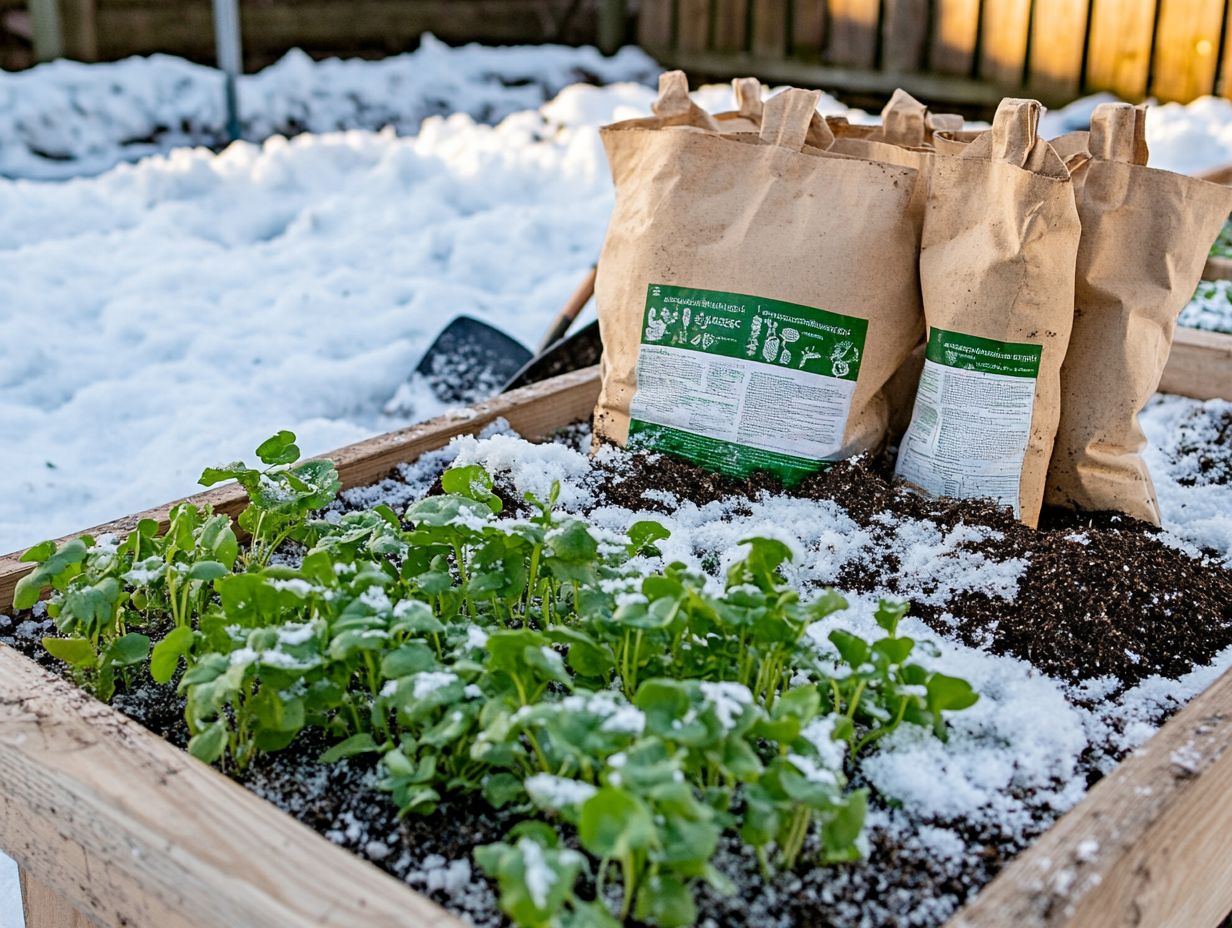
When choosing fertilizers for cold-climate plants, you have several options. These include organic compost, liquid fertilizers, and granular varieties.
Each type offers unique benefits based on its formulation and application. Winter fertilizers, especially those rich in nitrogen or designed for slow release, can improve your soil’s nutrient profile.
Organic vs. Inorganic Fertilizers
Choosing between organic and inorganic fertilizers depends on your gardening goals. Organic options like compost enrich your soil and improve its structure.
Inorganic types, like synthetic ammonium nitrate, provide quick nutrients but may raise long-term soil health concerns. Timing is key; use nitrogen-rich organic fertilizers in spring for robust growth!
Factors to Consider When Choosing Fertilizer
Selecting the ideal fertilizer requires thoughtful consideration of various factors. These include the type of plants you’re cultivating, their specific nutrient requirements, the composition of your soil, and its pH levels.
Each of these elements plays a crucial role in enhancing plant health. This is particularly important in colder climates where conditions can be more challenging.
Plant Type and Nutrient Needs
Different plant types have unique nutrient needs for optimal growth. This is especially true for cold-climate plants like turfgrass and perennial varieties.
Nutrient requirements can differ significantly among flowering species, leafy greens, and root vegetables. For example, leafy greens typically crave higher nitrogen levels during the cooler months.
Flowering plants benefit from an uptick in phosphorus as they gear up for their spring blooms. Understanding these seasonal shifts helps you select fertilizers that align with your plants distinct needs.
This understanding fosters healthy plant development and cultivates more sustainable and productive gardening practices.
Soil Composition and pH
The composition and pH of soil are critical factors influencing nutrient availability. This ultimately impacts the overall health and growth of your plants.
Understanding your soil’s specific makeup, including its texture and mineral content, determines how well nutrients are absorbed. For example, sandy soils drain quickly but may lack essential nutrients.
Clay soils retain moisture but can become compacted, which hinders root growth. The pH levels in your soil can dramatically affect nutrient solubility.
A pH that is too high or too low can render vital nutrients like nitrogen, phosphorus, and potassium unavailable to your plants. To navigate these challenges, performing a soil test is invaluable.
This process helps you identify the current pH and nutrient levels in your soil. By understanding these key aspects, you can maintain a lush, healthy lawn and select fertilizers that effectively promote vitality and growth.
Applying Fertilizer to Cold-Climate Plants
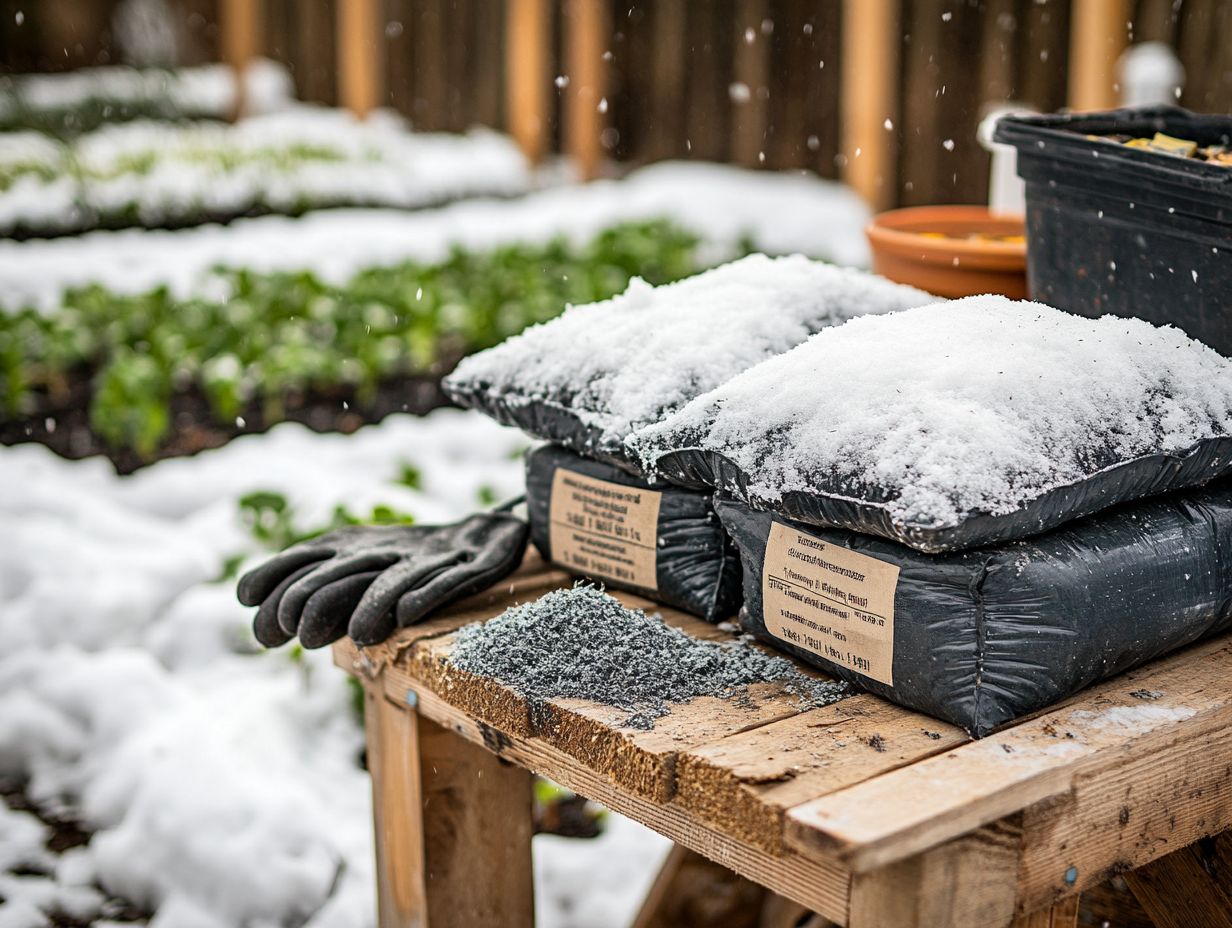
To apply fertilizer effectively to cold-climate plants, you need to grasp the best practices that will maximize nutrient efficacy while minimizing the risk of harmful effects or nitrogen overload. For those interested in enhancing their gardening efforts, selecting cold-climate plants for urban gardens is essential. Understanding these principles will enable you to nurture your plants without compromising their health.
Best Practices for Application
When applying fertilizers, adhering to best practices can significantly boost nutrient absorption and overall plant health. This is particularly true for choosing the right soil for cold-climate gardening fertilizers.
To achieve maximum effectiveness, pay close attention to the timing of your applications. Early fall or late winter are ideal times, aligning perfectly with the plant’s growth cycles.
Environmental factors, such as soil temperature and moisture levels, are crucial for nutrient uptake. Apply fertilizers when the ground isn’t frozen to ensure that the nutrients remain accessible to the roots.
Incorporating organic matter into your soil can enhance its structure and moisture retention, further amplifying the effectiveness of your fertilizers.
Regular soil testing gives insights into your plants’ nutrient needs, allowing for targeted applications that promote vigorous growth, even in challenging cold conditions.
Common Mistakes to Avoid
Avoiding common fertilization mistakes is essential for ensuring your plants thrive in cold climates. In these settings, improper application can lead to serious issues like chemical exposure and nutrient deficiencies, jeopardizing your greenery’s health. Additionally, consider choosing the right pesticides for cold climates to further protect your plants.
Potential Consequences of Improper Fertilization
Improper fertilization can lead to detrimental consequences, including chemical burns to your plants and nutrient deficiencies that compromise turf response and overall plant health.
Applying fertilizers too heavily or at the wrong time can create a toxic environment for your plants, often manifesting as browning or wilting leaves. An overabundance of nitrogen might promote excessive leaf growth but can weaken root systems, making your plants more vulnerable to drought stress and disease. On the flip side, lacking essential nutrients like potassium may result in stunted growth and reduced flowering in your ornamental plants.
Such misguided applications not only risk immediate damage but can also lead to long-term degradation of soil health. It s crucial for you, whether you’re a gardener or landscaper, to adhere to best fertilization practices.
Doing so ensures robust plant vitality and fosters sustainable gardening. Start fertilizing wisely today for a vibrant garden tomorrow!
Frequently Asked Questions
What is the best type of fertilizer for cold-climate plants?
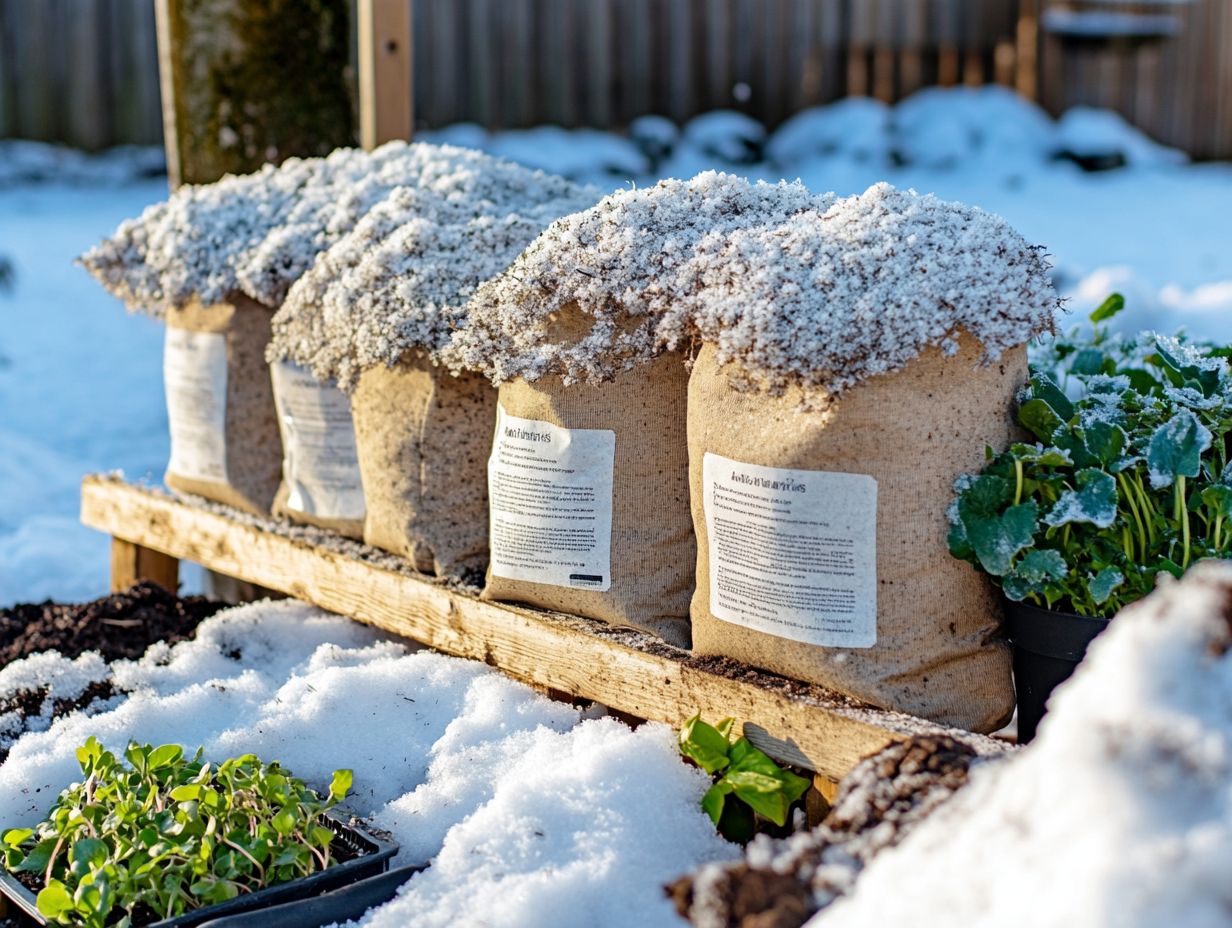
Choose a fertilizer high in potassium and phosphorus, with slow-release nitrogen to promote healthy growth without excessive foliage that can be damaged by frost.
Can I use the same fertilizer for all my cold-climate plants?
No, different types of cold-climate plants have different nutritional needs. It’s important to choose a fertilizer that is suitable for the specific plants you are growing. Consider using natural fertilizers for cold-climate gardens and read the label carefully to ensure it is appropriate for your plants.
Do I need to fertilize my cold-climate plants during the winter?
No, it is not necessary to fertilize cold-climate plants during the winter months. Most plants are dormant and do not require additional nutrients. Wait until spring, when the plants are actively growing, to fertilize.
How often should I fertilize my cold-climate plants?
This can vary depending on the specific plants and fertilizer used. Generally, it is recommended to fertilize once every 4-6 weeks during the growing season. Always follow the instructions on the fertilizer label for best results.
Are organic fertilizers better for cold-climate plants?
Organic fertilizers are great for cold-climate plants! They release nutrients slowly and enhance soil health, especially when paired with the right guide to choosing mulch for cold-climate plants.
Choose a high-quality organic fertilizer and follow application guidelines for the best results.
Can I make my own fertilizer for cold-climate plants?
Absolutely! You can create your own fertilizer using natural ingredients like compost, seaweed, and fish extract (fish emulsion is a nutrient-rich liquid made from fish waste).
Finding the right nutrient balance may take some experimentation. Research and talk to a gardening expert for guidance before you start!

